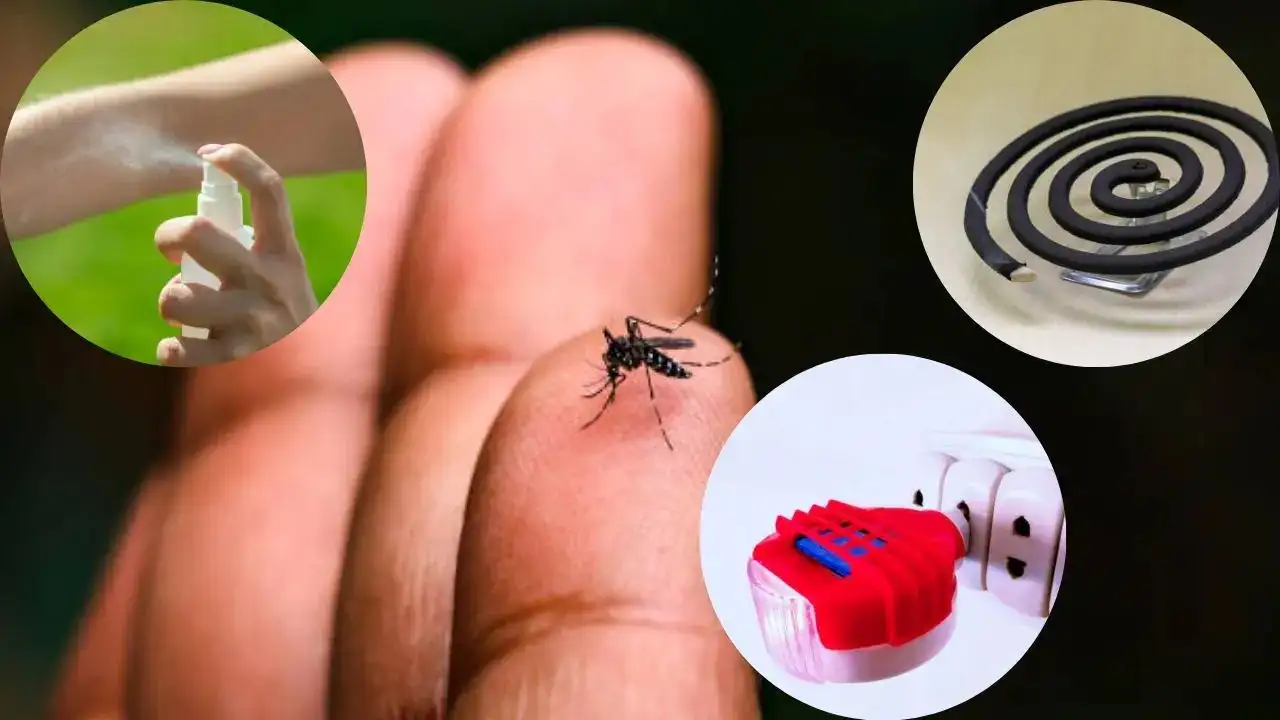
While they are helpful in keeping mosquitoes away from you, chemicals in repellents are extremely harmful to humans
It is the summer season—the time when mosquitoes start their attacks all over. And so most people use coils, vaporisers, and plug-ins—a common feature in Indian households during the warmer months—to prevent bites and subsequent infections that you may get. While it does ensure a night of peaceful sleep, are the repellents safe for your health?
What are the harmful chemicals used in repellents?
Allrethrin
According to experts, both coils and vaporisers use chemicals like allethrin - a synthetic insecticide, which is a man-made chemical that mimics the insecticidal properties of pyrethrins found in certain flowers like chrysanthemums. It's primarily used to control flying and crawling insects in homes and other indoor settings, including pet shampoos and sprays.
While they are helpful in keeping mosquitoes away from you, these chemicals are extremely harmful to humans—especially with prolonged use in enclosed rooms.
DEET
DEET is considered to be one of the most effective bug repellents. While it may be considered safe for people of all ages, the American Academy of Pediatrics says not to use bug repellent on babies younger than two months old. Use caution putting it on premature babies, because their skin can be more sensitive.
The AAP recommends using repellents with no more than a 30 per cent concentration of DEET for kids over two months. A 10 per cent concentration of DEET protects for about two hours. Use the lowest concentration of DEET possible for the amount of time that kids will be exposed to bugs.
What are the side effects of mosquito-repellent creams and roll-ons?
Mosquito-repellent creams are a popular choice to keep mosquitoes away, but they also come with various side effects. While offering protection from bites, frequent use causes skin irritation, allergies, and even long-term health risks. A few of them are listed here:
Skin irritation and rashes
Many mosquito-repellent creams contain chemicals like DEET, which can cause redness, itching, and rashes, especially for people with sensitive skin.
Allergic reactions
Many people can experience swelling, burning, or severe irritation after applying these creams due to allergic reactions.
Dryness and skin damage
Prolonged use of repellent creams can strip away natural moisture, leaving the skin dry and flaky.
Acne
The greasy texture of some mosquito-repellent creams may clog pores, leading to acne and breakouts.
Eye and breathing troubles
Accidental contact with eyes or inhalation of certain repellents can cause irritation, watering eyes, and breathing difficulties.
Hormonal disruptions
Some chemical-based repellents contain ingredients that may interfere with hormonal balance, especially in children.
Environmental and health concerns
Many mosquito repellents contain synthetic compounds that are harmful to the environment and may have long-term health impacts.
Natural products that are great for repelling mosquitoes
There are many natural bug repellents available for people who prefer to avoid chemicals, which vary in how good they are at preventing bugs from biting you:
Soy-based products
Soybean oil is the active ingredient in some natural bug repellents.
Catnip
It is a plant from the mint family that protects you against mosquitos for up to eight hours.
Essential oils
Many newer bug repellents use plant ingredients to try to keep the bugs away. Some include essential oils, which are a very concentrated version of certain chemicals from the plant. Some plants and essential oils that might work include Chinese lovage, Indian rosewood, pine, lavender, geranium, jasmine, and lemongrass.
Get Latest News Live on Times Now along with Breaking News and Top Headlines from Health and around the world.
